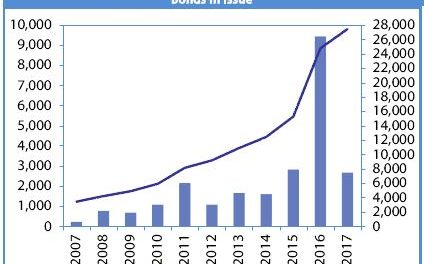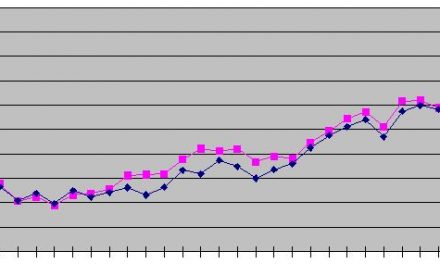
It is now official, unemployment is down to zero
Inflation is a difficult concept to capture. Its broadest definition tells us inflation is measuring the change in prices. A reliable inflation measurement would have included all items and all services offered and sold in every single settlement across the whole country.
Suddenly it appears measuring inflation is not that straightforward. It is not possible to cover every single business, vendor and roaming picket offering something for sale, to get to a watertight inflation figure. So we invent gauges and we apply certain methodologies in an attempt to find an reading for inflation that is representative of more or less the majority, or the so-called average person.
Since this is such a pervasive problem worldwide, statisticians have designed, implemented and tested various models over many years. These models have converged into two broad measurements, so-called headline inflation, or household inflation, and core inflation which excludes the two components, energy and food, as these are deemed volatile and susceptible to relatively large price swings over short periods. But in the end, despite its many shortcomings, the inflation methodology is as sound as one gets, and eventually provides a reliable picture of how prices move, especially if the measuring process covers one year or more.
So, incorporating all the intricacies of inflation measurement into their model, the Namibia Statistics Agency recently told us average annual inflation is in the region of 3%. This is based on measuring inflation every month and then comparing the index to the same month a year ago. These monthly measurement are then averaged and one gets an inflation reading for a calendar year. The methodology can not be faulted.
But then enters Nafinu, telling us this is not so. The statistics agency is talking nonsense, trying to sell us sweet cakes. And it advises its members, all well-paid and comfortably employed by local commercial banks, with all the perks of housing, transport, medical aid, pension and what have you, that they should demand annual increments more than double the official inflation rate. If the banks do not want to concede, then they must strike.
At this moment, the burning point is between the union and Nedbank. But I suspect this is only the beginning of a round of instigated industrial action in the financial services sector, and it will eventually spill over to all other institutions.
One must never forget, union bosses buy their black Range Rovers with money they get as membership contributions. And the cherry on the cake is that they do not need to move a finger to collect this very substantial sums of money. The banks, being slightly gullible as they are and believing they will negotiate in good faith with a bona fide workers’ representative, subtract these membership contributions and transfer these to the unions’ accounts.
But then the union bosses grow in audacity, seeing that if the financial services sector gives increments in line with inflation, it is going to make a dent in the rate at which the union bosses’ income grows. So they exploit their poor gullible members giving them false advice, and if all else fails, then they just go the proven way telling them to strike.
When a union boss advises its members they must strike, it is an overt indication that they do not know how to negotiate any further. They are in a corner, so to speak. But they keep on making promises to their poor members, with their perks and all, knowing full well that they will play the strike card when they are cornered.
They also send the rest of us a strong signal, perhaps the only joyful issue in this whole nonsensical debate. They are telling us there is zero unemployment in Namibia. We now run an economy of which all other countries can only dream, that of full employment. Is it not fantastic to learn from the very learned union bosses that we have attained full employment. Remuneration is no longer a matter of employee costs, rather it reflects a negotiated promotion for each and every employee completely divorced from merit.
Imagine how much money we can save if we disband the statistics agency. Now there is no longer any need for doing the arduous job of actually measuring inflation. There is also no need to measure unemployment. As a matter of fact, all those students who are usually only too thankful to help conduct the surveys that give us our unemployment figures, have become redundant. But why do we worry, according to Nafinu they are all gainfully employed and do not need the survey jobs.
It is true, we really live in paradise.













































